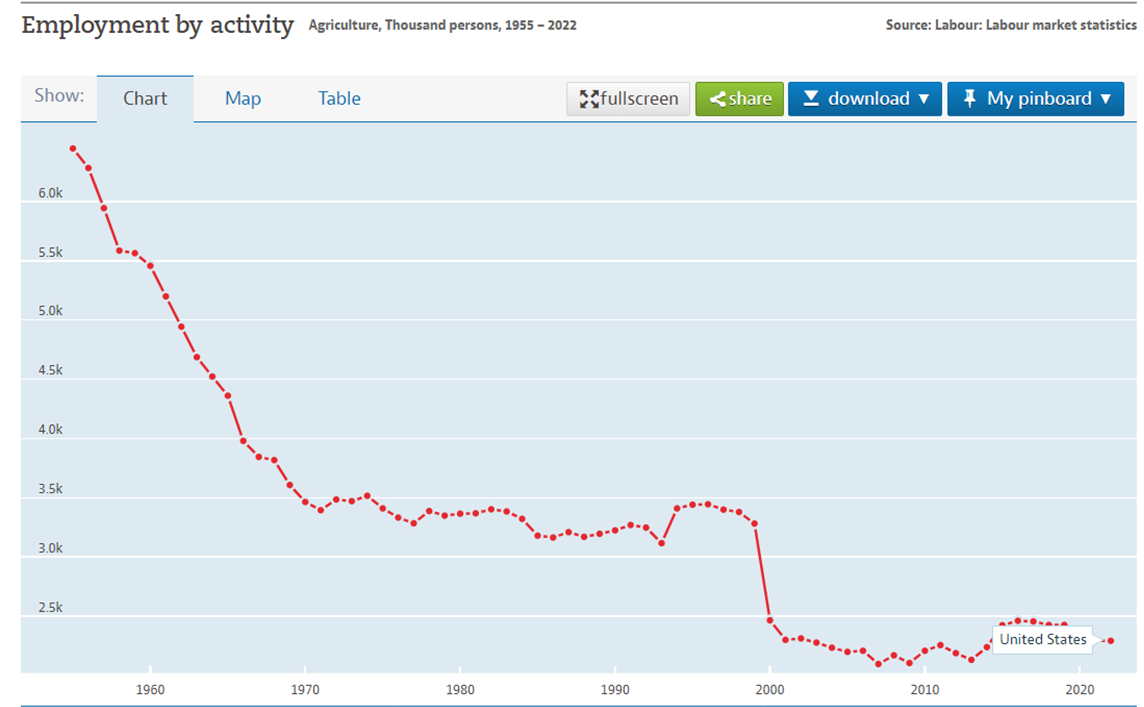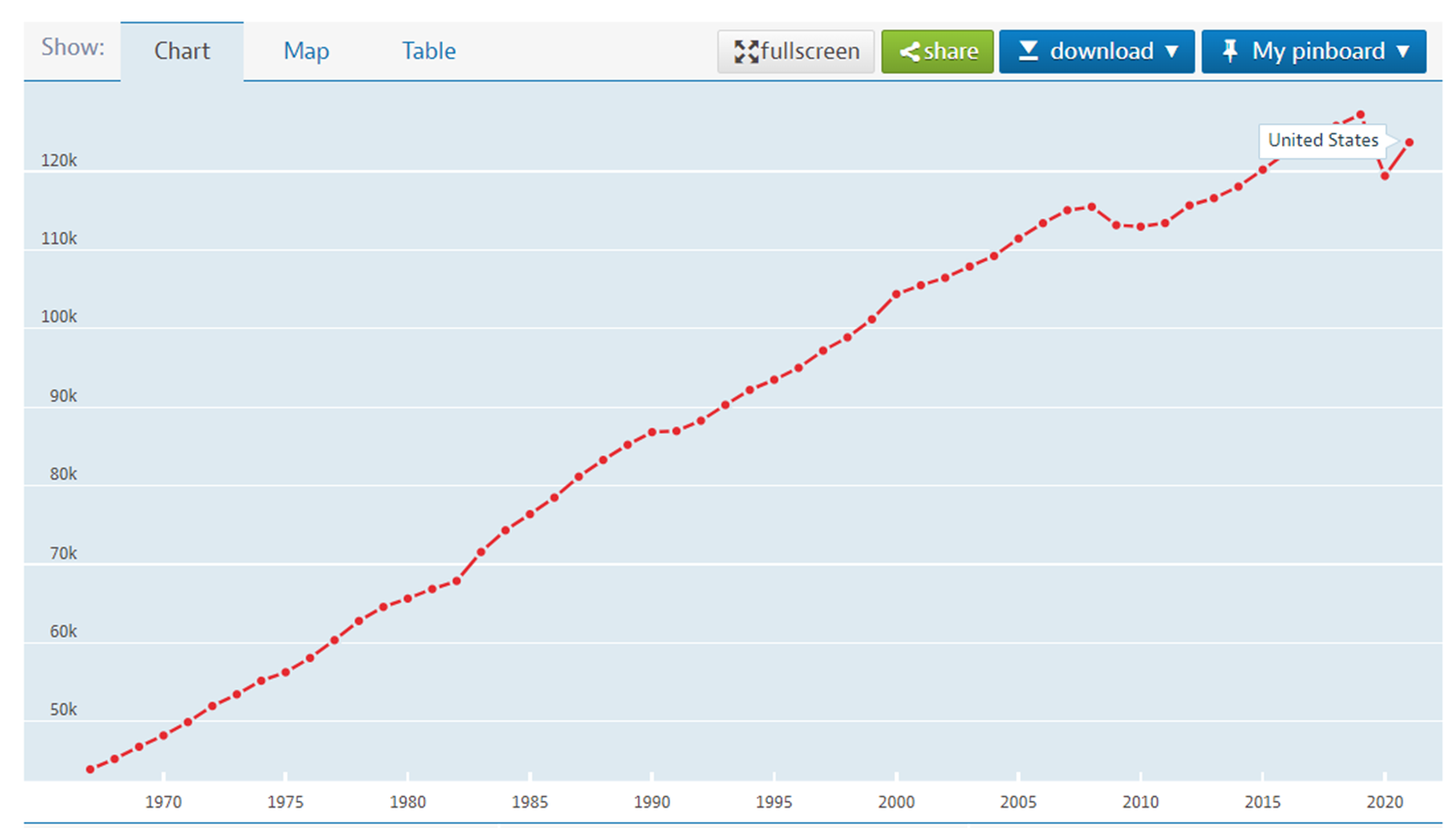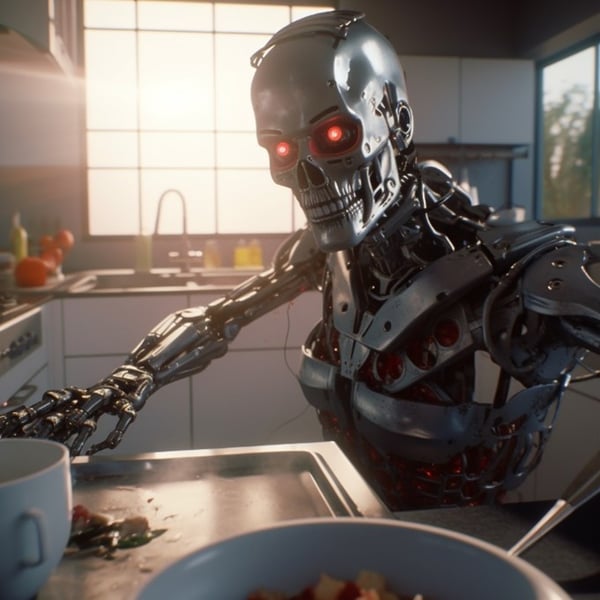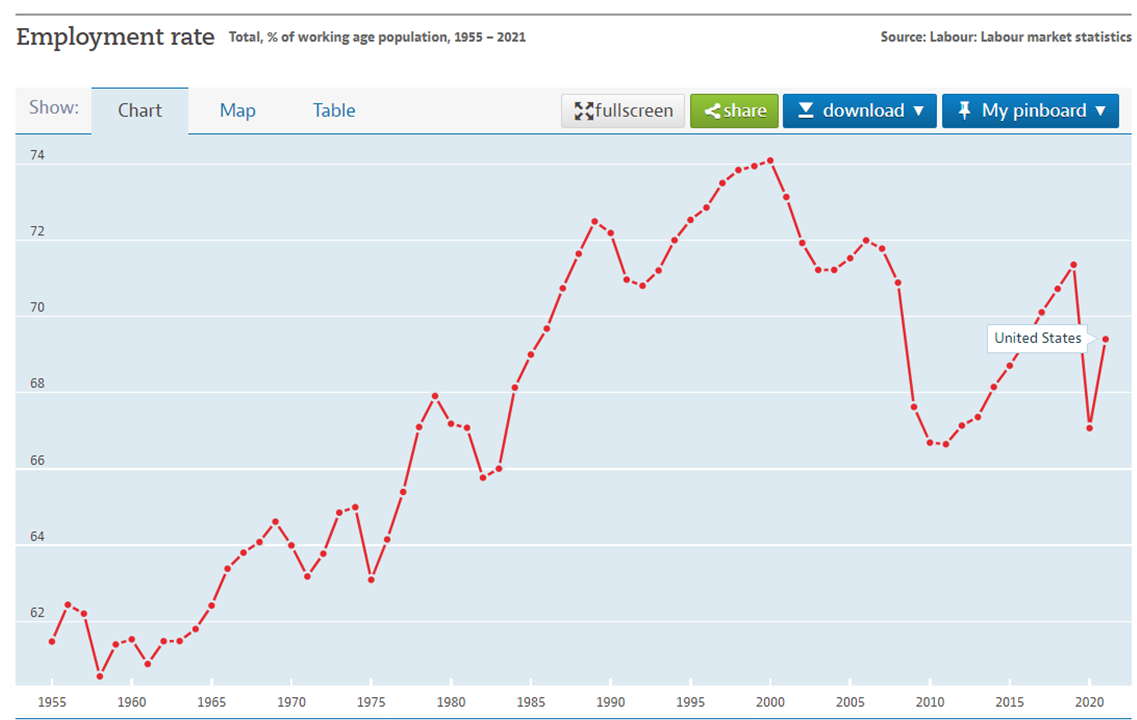Two perspectives of AI shaped future
A lot of the discussion about AI tends to fall into two main camps.
1) How the current versions of AI we have through large language models like Chat GPT and generative AI models that produce content including text, imagery, audio etc. will evolve, and the impact this will have on the job market as tasks that were once the preserve of skilled and trained humans are supplanted by AI.
2) The development of AGI, where the AI effectively becomes smarter than us and starts to ‘think’ for itself, and the potential implications this has for the future of the human race. This is the ‘Skynet debate’, and tends to revolve around whether we think the AI will decide that humans are the problem or expendable in relation to its goals and objectives. Posts are usually accompanied by a picture of The Terminator.
AI - the next technological revolution
With such a potential powerful technology at such an early stage of development no-one really knows what’s going to happen with the development of AI, how quickly this will happen, or what the consequences of these developments will be. A recent Forbes article (1) suggests that the first step in the process of AI replacing people in the workplace is that those who learn to use AI in their jobs and businesses will be the ones to succeed, whereas those who do not keep up with this technology will fall by the wayside. Seems reasonable, and not dissimilar to other technological revolutions. If you didn’t learn how to harness the power of the personal computer or the internet you can be pretty sure your business went from competitive to redundant pretty quickly.
AI is the next technological revolution, but because it's hard to predict what its impact on the world of work will be at this stage, there may be lessons to be learned by looking back in time (and of course at the data) to see what we can learn from previous technological revolutions and their effect on the world of work and employment.
Chart (1) below shows the number of Americans employed in the agricultural sector from 1955-2022

There is a very clear trend here over time. The number of citizens employed in this kind of work has declined massively over the past 70 years. This is in no small part due to technological innovation in this sector, the efficiencies this has brought and the reduced need for manual labour.
Chart (2) below shows the overall levels of employment in the US from 1955-2021
This shows a general and steady increase in the levels of employment over time, with a few more recent blips along the way (financial crisis and housing market collapse anyone?). What we haven’t seen is that a mass exodus from the agricultural sector (in part driven by technological innovation) has resulted in mass unemployment. In fact it’s been the opposite, as more people have entered the workplace. The reasons for this are multi-faceted and complex, but the important thing is that the general trend has been overall levels of employment going up, not down as we become more technologically advanced and efficient.
Chart (3) below shows the number of people employed in the service sector from 1967-2020

This is pretty much the inverse of what’s happened in the agricultural sector, with employment steadily rising in this sector over time. The types of jobs that have emerged over the past 70 years in developed economies like the US have skewed heavily towards the service sector.
The future is already here: Read about the new virtual home robot
Is AI the reason to worry?
So, what does all this have to do with AI? Well, it points towards a human tendency for us to reinvent what it is to work. Technological innovation doesn’t necessarily mean the end of employment, it can mean a redefining of what constitutes work and the invention of new roles with different skill sets. If we look at some of the jobs that have emerged out of the burgeoning service sector, the job titles and roles would have been pretty much inconceivable to most people working in the agricultural sector in the 1950s. If you’d told them that their grandkids would be a career coach, pilates instructor or social media content creator you’d have been met with some pretty weird looks given these jobs didn’t exist at the time. Even if you explained it they’d probably struggle to understand why anyone would pay for such services.
Does AI mean the end of certain people’s jobs? Almost certainly so, in the same way development of intensive farming technology meant the end of people’s jobs in agriculture, and the invention of the telegram meant the end of gainful employment to those employed by the Pony Express. You can already see it happening with posts on Linked In about people losing their jobs in services related to copywriting, photography, coding and graphic design. I’m nervous about the industry I work in. Will we need to survey consumers in the future or just ask the AI?
But, this doesn’t necessarily mean we are going to see a mass wave of unemployment directly attributable to AI. If history has shown us anything it’s that we have the capacity to continually reinvent what work and employment looks like, and what function it serves in society. So, there’s a good chance we’ll get to carry on complaining about our jobs for a bit longer rather than complaining about the fact we don’t have one. The question is what will that job look like in the future?
Read more about how applications of market research in the study of AI, and how Bryter can help your organisation develop their AI strategy
Sources:
1. https://www.forbes.com/sites/williamarruda/2023/06/21/how-ai-will-get-you-fired-if-you-dont-use-it/
2. https://data.oecd.org/emp/employment-by-activity.htm#indicator-chart
3. https://data.oecd.org/emp/employment-rate.htm
4. https://data.oecd.org/emp/employment-by-activity.htm#indicator-chart
5. Article image created by midjourney generative AI from the prompt ‘The terminator T-800 series doing the dishes’ https://www.midjourney.com/





